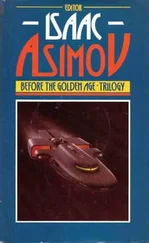Sam Eastland - The Beast in the Red Forest
Здесь есть возможность читать онлайн «Sam Eastland - The Beast in the Red Forest» весь текст электронной книги совершенно бесплатно (целиком полную версию без сокращений). В некоторых случаях можно слушать аудио, скачать через торрент в формате fb2 и присутствует краткое содержание. Год выпуска: 2013, ISBN: 2013, Издательство: Faber & Faber, Жанр: Исторический детектив, на английском языке. Описание произведения, (предисловие) а так же отзывы посетителей доступны на портале библиотеки ЛибКат.
- Название:The Beast in the Red Forest
- Автор:
- Издательство:Faber & Faber
- Жанр:
- Год:2013
- ISBN:9780571281466
- Рейтинг книги:4 / 5. Голосов: 1
-
Избранное:Добавить в избранное
- Отзывы:
-
Ваша оценка:
- 80
- 1
- 2
- 3
- 4
- 5
The Beast in the Red Forest: краткое содержание, описание и аннотация
Предлагаем к чтению аннотацию, описание, краткое содержание или предисловие (зависит от того, что написал сам автор книги «The Beast in the Red Forest»). Если вы не нашли необходимую информацию о книге — напишите в комментариях, мы постараемся отыскать её.
The Beast in the Red Forest — читать онлайн бесплатно полную книгу (весь текст) целиком
Ниже представлен текст книги, разбитый по страницам. Система сохранения места последней прочитанной страницы, позволяет с удобством читать онлайн бесплатно книгу «The Beast in the Red Forest», без необходимости каждый раз заново искать на чём Вы остановились. Поставьте закладку, и сможете в любой момент перейти на страницу, на которой закончили чтение.
Интервал:
Закладка:
The answer came to him as he trudged through the forest one day, gathering mushrooms for the partisans’ communal cooking pot. It was a warm afternoon and perspiration trickled down his forehead, stinging his eyes and wetting his dusty lips. And suddenly Malashenko realised what he would ask for in payment. ‘Genius,’ he muttered, licking the sweat from his fingertips.
The answer was salt. He would trade information for salt. Throughout history, people had substituted salt for money. Even the Roman soldiers, whose isolated garrisons had once clung like limpets to this landscape, received salt as part of their salaries.
Salt had always been expensive, even before the war, but once the fighting began all available reserves had been snatched up by the military. Only those crafty enough to have hidden away their supplies could get their hands on it now. Malashenko might not have been rich. He might not have been the kind of man for whom salt was always within easy reach. But Malashenko was exactly the kind of individual who might have hidden his supply from the claws of government. That was a story even the most suspicious of his neighbours would believe.
These days, a person could buy anything with salt. From now on, that was exactly what he intended to do.
On his next visit to Rovno, Malashenko walked into the headquarters of the Secret Field Police, located in the former Hotel Novostav. With cap in hand and gaze lowered humbly to the floor, he stood before the desk of Otto Krug.
Krug was a giant of a man, with a boiled red face, wispy white hair and huge fists tucked into pale green doeskin gloves, like bunches of unripe bananas. He wore these gloves, even inside his office, due to a bad case of eczema that split his fingertips and left his knuckles raw. The condition had appeared shortly after his arrival in Rovno, and he blamed it entirely on the stresses of his new job.
As a result, Krug despised Rovno. He hated everything about it. Even before he arrived to take up his post, Krug had already begun scheming for promotion to one of the larger, more important cities of this soon-to-be conquered nation. Minsk perhaps. Or Kiev. Odessa. Stalingrad. In the wide scope of Krug’s ambition, even Moscow was not out of the question, provided he first took advantage of all the opportunities available to him here in Rovno.
When Malashenko explained that he was a trusted member of the elusive Barabanschikov Atrad, Krug pulled out a Luger pistol and laid it on the desk in front of him. ‘Why should I let you walk out of here alive?’ he asked.
With his eyes fixed on the gun, Malashenko explained what he was prepared to do.
Without moving the Luger from the desk, Krug brought out a bottle of apricot brandy, poured a measure into a glass and slid it across the table to the dishevelled little man. Then he sat back, gloved fist gripped around the neck of the bottle.
Malashenko poured it down his throat and the soft sweetness of the fruit was so perfectly contained within the glassy liquid that he could almost feel the downy softness of the apricot’s skin against his lips.
‘Assuming I can use this information,’ said Krug, ‘what do you want in return?’
When Malashenko named the manner of his payment, Krug had to stop himself from laughing out loud at his good fortune. Whole warehouses of salt were no more than a requisition slip away.
Krug slid the bottle across to Malashenko. ‘Help yourself,’ he said.
The men shook hands before they parted company, the Chief of Secret Field Police towering over the diminutive Malashenko.
Soon afterwards, the salt began to flow.
In brown, moisture-proof half-kilo bags, Malashenko marked his own path to prosperity. He hid this newfound wealth in a secret underground chamber, dry and lined with stones, which he had constructed in the woods behind Pitoniak’s cabin.
Whenever Malashenko learned of anything which he thought might be of interest to Krug, he found some excuse to visit Rovno and then paid a visit to the Geheime Feldpolizei.
In order to be able to leave the Atrad’s hiding place in the forest and visit Rovno on a regular basis, Malashenko established himself as a courier to the hospital in town. Although wounded partisans could not be brought to the hospital, which was constantly being watched by the German authorities, sympathetic Russians who worked there could still smuggle out medicine to the Atrads. Occasionally, doctors or nurses could be persuaded to make visits to the Atrads. Malashenko acted as a courier for both the medicine and the doctors, who would be blindfolded and led down as many winding trails as possible on their way to the hiding place, so as not to be able to repeat the journey on their own. Once they arrived at the Atrad, the doctors would perform surgeries in the most primitive conditions imaginable. But it was better than nothing at all.
Part of Malashenko’s agreement with Krug was that he would continue to carry out his duties as a courier, even though the German authorities were well aware of what he was doing. Krug considered the stolen medical supplies and the occasional doctor visit a small price to pay, compared to the information Malashenko supplied about partisans in the region.
As a result of Malashenko’s information, numerous Atrads were wiped out.
The Barabanschikovs, however, remained untouched. Malashenko credited this to his value as an informant, but that was only partly true.
The local anti-partisan troops had found the Barabanschikovs so elusive that Krug decided it would be easier just to leave them alone for now, and to focus on easier targets. Krug had long since realised that the war against the partisans could only be won in stages, and not in one all-out attack. The day would come when Krug would focus all of his resources on destroying the Barabanschikovs. For now, however, Krug had good reason to leave them in peace.
Malashenko always delivered his information in person to Krug, not trusting any intermediary or other form of communication, since he could neither read nor write. He entered the Feldpolizei headquarters through a tunnel which ran from a bakery across the road directly into the basement of the old hotel. Krug had ordered the tunnel to be built, not as a means of conveying informants into the building, but as a means of his own escape if the headquarters ever came under attack.
The amount of salt Krug paid out varied, depending on the value of the information, but Malashenko never had cause to complain. No matter how trivial the news, Krug never turned him away. He even handed over an extra bag of salt at Christmas.
But the next year brought changes. First came the defeat of the German Sixth Army at Stalingrad. Then the mighty clash of armour at Kursk, from which the Red Army emerged victorious. By the autumn of 1943, the German army was in full retreat. Even the most fanatical among them began to realise that their fate was sealed. Soon, Malashenko knew, the Soviets would be his masters once again.
This conclusion came without a trace of joy or gratitude that the hour of Russian liberation was at hand. Instead, all that Malashenko felt was a shudder of dread, clattering like a knife blade down the ladder of his spine. He harboured no illusions that the defeat of Germany would bring peace to his world. The terror meted out by Nazi gauleiters would simply be replaced by the heavy-handed justice of the commissars, as it had been before the war began.
Anticipating the imminent arrival of the Soviets, partisan activity in the forests around Rovno had increased. Some of their attacks, on railway lines, German patrols and even on Rovno itself had turned into full-scale battles. Successive air raids, first by the Red Air Force and then by the Luftwaffe, had reduced the lives of those few surviving inhabitants of the town to something out of the Stone Age.
Читать дальшеИнтервал:
Закладка:
Похожие книги на «The Beast in the Red Forest»
Представляем Вашему вниманию похожие книги на «The Beast in the Red Forest» списком для выбора. Мы отобрали схожую по названию и смыслу литературу в надежде предоставить читателям больше вариантов отыскать новые, интересные, ещё непрочитанные произведения.
Обсуждение, отзывы о книге «The Beast in the Red Forest» и просто собственные мнения читателей. Оставьте ваши комментарии, напишите, что Вы думаете о произведении, его смысле или главных героях. Укажите что конкретно понравилось, а что нет, и почему Вы так считаете.











